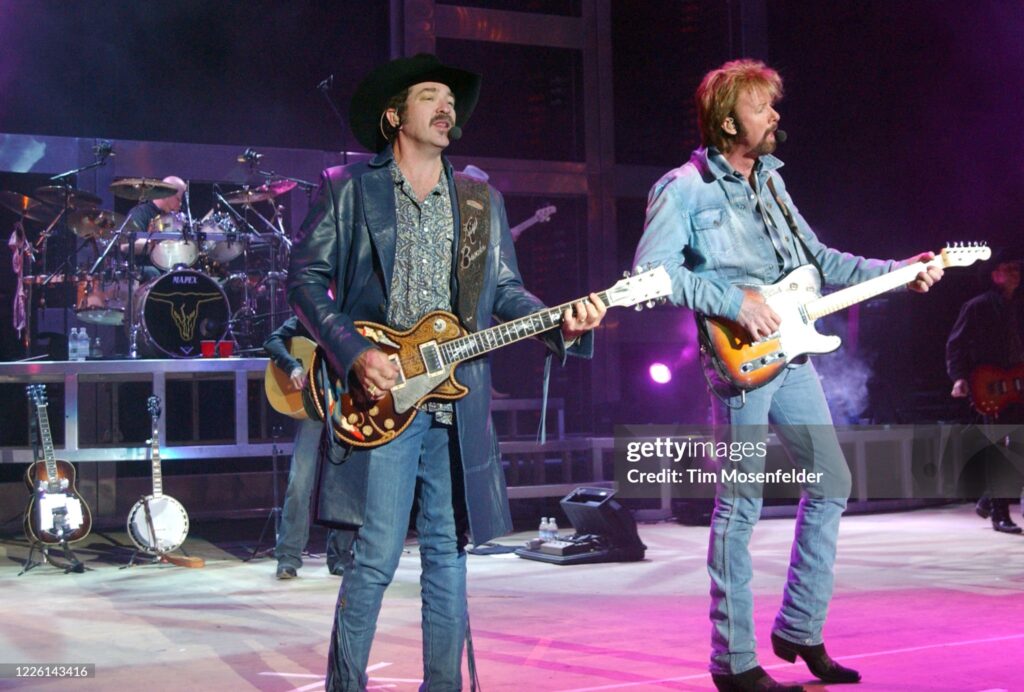
A Patriotic Dream Set to Steel Strings and Asphalt Horizons
When Brooks & Dunn released “Only in America” in June 2001 as the second single from their album Steers & Stripes, the song quickly carved its place into the cultural landscape. It climbed to No. 1 on the Billboard Hot Country Songs chart, embodying a moment of national self-reflection just months before September would redefine the American psyche. Crafted by songwriters Don Cook, Ronnie Rogers, and Kix Brooks himself, this track did more than top charts—it became a modern-day anthem, an aural mural of everyday aspiration set against the vastness of the American dream.
At its surface, “Only in America” is an ode to possibility—a celebration of the idea that from any humble beginning can rise success, fulfillment, and pride. But embedded within its up-tempo cadence and bright guitar lines lies a deeper commentary on identity, ambition, and the egalitarian mythology that fuels a nation perpetually in search of itself.
Musically, the song is built on a solid country-rock foundation, with electric guitars driving forward like headlights down a two-lane highway. It’s optimistic without being naïve; jubilant without tipping into jingoism. The production mirrors the message: polished but grounded, accessible but stirring. Kix Brooks takes lead vocals here—a notable choice in a duo where Ronnie Dunn often commands the mic—adding a textured sincerity that underscores the song’s democratic ethos. Brooks’ voice carries a grain of working-class grit, suggesting lived experience over polished performance.
Lyrically, “Only in America” paints vignettes of ordinary people on extraordinary paths: “One could end up going to prison / One just might be President.” It’s this juxtaposition that lends the song its emotional weight—not just what is said, but how it dares to suggest that triumph and tragedy reside side by side under the same stars and stripes. The American dream here isn’t sanitized or guaranteed; it’s risky, unpredictable, and hard-won. That complexity gives the song its staying power.
Although written before September 11th, 2001, “Only in America” took on renewed significance in the aftermath. As the nation grappled with grief and searched for symbols of unity and resilience, this track found itself replayed at rallies, inaugurations, and national events—its chorus echoing like an incantation of shared hope. It became more than music; it was reassurance wrapped in melody.
In time, “Only in America” has transcended its release moment to become a fixture in America’s sonic iconography—a song that does not flinch from idealism but tempers it with reflection. For those who remember where they were when they first heard it—whether driving down a country road or standing beneath fireworks on Independence Day—it remains not just a hit single but a snapshot of collective belief: that greatness can rise from anywhere, and anyone might hold destiny in their hands.